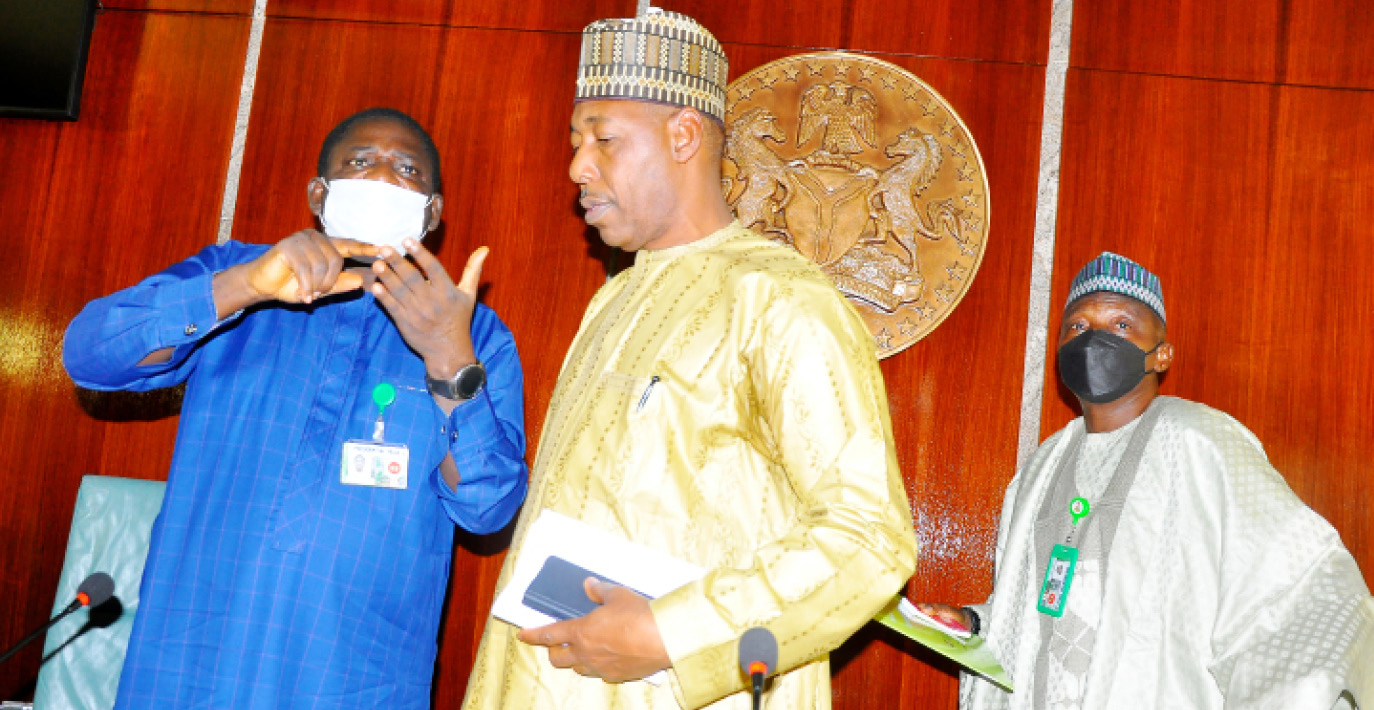Borno, UNICEF train journalists in reintegration of repentant B’Haram
Borno State government in collaboration with the United Nations Children’s Education Fund (UNICEF) has trained journalists to support the process of social reconciliation, reintegration and resettlement of repentant Boko Haram fighters in their host communities. Speaking during the commencement of a two-day training yesterday in Maiduguri which was funded by European Union (EU), the Borno […]

From left: Special Adviser, Media and Publicity to the President, Femi Adesina; Borno State Governor, Prof. Babagana Umara Zulum and Senior Special Assistant to the President on Media and Publicity, Malam Garba Shehu, during a briefing at the Presidential Villa, Abuja, yesterday
Borno State government in collaboration with the United Nations Children’s Education Fund (UNICEF) has trained journalists to support the process of social reconciliation, reintegration and resettlement of repentant Boko Haram fighters in their host communities.
Speaking during the commencement of a two-day training yesterday in Maiduguri which was funded by European Union (EU), the Borno State Commissioner for Home Affairs, Information and Culture, Babakura Abba Jatau, said the objective was to strengthen the knowledge and skills of journalists in disseminating relevant information in promoting healings, reconciliation and reintegration in the state.
- Boat mishap: 2 teenagers die, 7 rescued in Jigawa community
- Lack of population data causing problems in Nigeria – Edwin Clark
Represented by the permanent secretary in the ministry, Garba Musa Chibok, he explained that the project of reconciliation and reintegration could not be done without the active role and input from journalists as agents of positive change.
On her part, the Commissioner for Women Affairs and Social Development, Hajiya Zuwaira Gambo, who was represented by the acting director of social welfare, charged the participants to promote social activities including education, wellbeing and welfare of the internally displaced persons (IDPs) orphans and vulnerable women.
Earlier in his remark, the UNICEF’s representative, Usman Adamu, urged the participants to utilise the training by updating their knowledge on ethical reporting.
He also appealed to the journalists to make community leaders realise that it was a collective responsibility to tackle issues of violence against children
